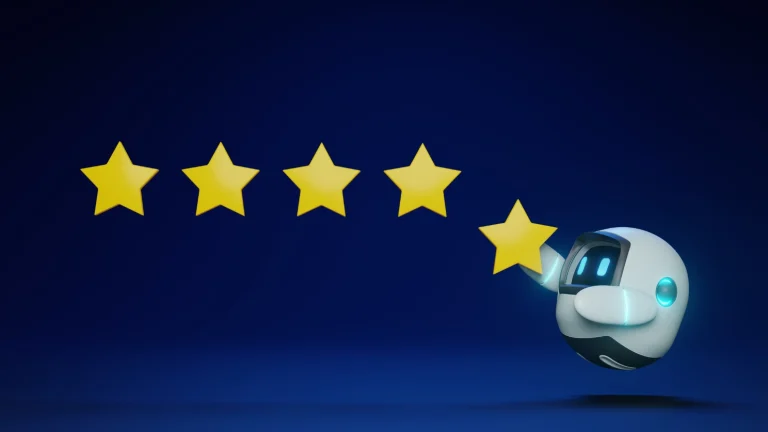Contents:
Feedback and complaint handling sit right at the point where your product’s reputation is made or lost. Most hotel SaaS teams still rely on manual tagging, scattered inboxes, and keyword filters that miss nuance. You feel the pain as backlogs grow, SLA clocks tick, and decision-makers lack a clean picture of what is burning today.
Independent research continues to underline the link between response quality and guest satisfaction. The 2024 J.D. Power study highlights that higher scores at third-party managed hotels correlate with staff responsiveness to guest questions and issues, which ties directly to complaint handling speed and clarity. Faster triage and smarter routing drive the result. A custom hotel complaint AI agent lets you deliver that at scale.
This article walks you through building a custom hotel complaint AI agent that turns unstructured feedback into prioritized, routed, and summarized tickets. You will see the core architecture, the data flywheel, and an honest battlecard against generic APIs like Medallia Zingle, ReviewPro API, or MonkeyLearn NLP. You will also get a clear roadmap to ship an MVP and fold it into your existing SaaS without blowing up your backlog.
I’m Iurii Luchaninov, a Solutions Architect and full-stack engineer with 20+ years of delivery across AI and complex systems. I treat architecture as a craft and build agents that plug cleanly into POS, CRM, and back-of-house systems while staying explainable under load. If you are selling hospitality SaaS—not e-commerce or travel tooling—you are exactly who this piece was written for.
What Is A Hotel Complaint AI Agent Module In SaaS and How Does It Power Your Hotel Daily Report AI Agent
A Hotel Complaint AI Agent Module is an intelligent service layer inside your product that reads guest feedback across email, chat, OTA reviews, and surveys, then classifies and routes items in real time. It adds consistent severity scoring, extracts who and what the issue touches, and writes clear summaries for human operators. It also fuels your Hotel Daily Report AI Agent by producing concise, roll-up insights for managers before their morning stand-up.
You may also hear it described as an AI feedback analysis agent, guest sentiment AI module, hospitality NLP engine, or hotel review classifier. These are all variations of the same core idea with different emphasis on outputs and channels. Your naming can follow your product language as long as the capabilities remain intact and verifiable.
TripAdvisor’s latest transparency data highlights why a reliable signal matters in the age of generative spam. In 2024, the platform removed over 214,000 suspected AI-generated reviews across 101,411 properties in 189 countries, which underlines the need for robust detection and normalization before insights land in your queue. You do not want your pipeline to amplify noise when your customers need truth.
6 Capabilities Of A Hotel Complaint AI Agent
Before you implement, it helps to pin down the must-have behaviors for your first release. Each item should map to a KPI you already track, such as first-response time or issue recurrence. Start with a narrow set, ship, and expand deliberately.
- Sentiment classification with emotion flags for urgency and escalation.
- Entity extraction for topics like cleanliness, check-in, billing, or amenities.
- Severity scoring with deterministic rules and model-assisted thresholds.
- Auto-ticket creation and assignment into your CRM or helpdesk.
- LLM summaries for daily reports and real-time operator context.
- Regular learning on resolved tickets, macros, and CSAT outcomes to improve the system.
How Hotel Complaint AI Agent Modules Work In SaaS Products For A Hotel Daily Report AI Agent
Behind the scenes, your custom hotel complaint AI agent is a disciplined pipeline of ingestion, modeling, and delivery. You do not need exotic research to make it work; you need clean interfaces, testable components, and tight feedback loops. The goal is to reduce manual triage while giving humans better context, not to remove humans from judgment calls.
The following flow is proven in hospitality SaaS and scales well with multi-tenant loads. Each layer should be observable and independently deployable. Keep the interfaces boring and the data contracts explicit to reduce operational drag.
- Data Ingestion Layer — Pull text from PMS, email, chat, and review APIs, normalizing sources and metadata.
- Preprocessing Pipeline (Python, FastAPI) — Tokenize, deduplicate, language-normalize, and redact sensitive fields.
- NLP Model Layer (Transformers) — Run topic classification and sentiment analysis using PyTorch or TensorFlow.
- LLM Integration (LangChain + Your Chosen LLM) — Generate human-like summaries and response drafts with guardrails as well as process unstructured documents.
- Business Logic Layer (Serverless or Pipelines) — Score severity, select departments, and trigger auto-ticketing.
- Delivery Layer (REST/Webhooks/Microservice) — Post structured outputs back to your UI, CRM, or analytics store.
- Monitoring & Retraining (MLOps) — Track drift, capture outcomes, and retrain with curated, labeled samples.
To keep the Hotel Daily Report AI Agent useful, cache per-property insights and regenerate roll-ups on a schedule. Your report agent should not re-parse raw text each time; it should consume curated facts and stable summaries. This separation keeps costs predictable and explains why your daily brief remains consistent across shifts.
Battlecard: Custom Build vs. Off-The-Shelf For Your Hotel Daily Report AI Agent
Generic APIs can look faster at first glance, yet you trade away control and long-term margin. Your product becomes dependent on an external roadmap and rate limits that rarely match your growth curve. A custom module gives you IP, explainability, and room to tune for your hotel taxonomy.
Here is a side-by-side view you can share with stakeholders before you commit. Use it to align product, data, and finance on the same facts. Notice that “cost over time” and “compliance” often swing executive decisions more than raw model accuracy.
| # | Criteria | Custom AI Agent (Built With MobiDev) | Off-The-Shelf Product |
|---|---|---|---|
| 1 | Accuracy & Control | Trained on your real customer data and hotel taxonomy | Generic hospitality datasets, limited domain tuning |
| 2 | Integration Depth | Embedded deeply in SaaS workflows and UI | External dashboards, limited API callbacks |
| 3 | Feature Ownership | Full Intellectual Property (IP) control and brand differentiation | Shared algorithms, no proprietary edge |
| 4 | Scalability | Optimized for your stack and real load | Subscription tiers limit throughput |
| 5 | Compliance & Privacy | Deployed in your cloud with SOC 2/GDPR controls | Third-party processing adds privacy risk |
| 6 | Cost Over Time | Higher upfront, lower long-term OPEX | Recurring license and usage fees |
The takeaway is simple and defensible for your board. A custom module becomes a moat, not a monthly bill that grows with your success. You also gain room to innovate, such as visual queue simulation or property-level “what-if” analysis.
Implementation Roadmap For A Custom Hotel Complaint AI Agent And Hotel Daily Report AI Agent
You can move from idea to live module without freezing your main roadmap. The key is to frame the agent as a productized service with its own backlog and acceptance tests. Keep the MVP narrow, measurable, and aligned to one hotel KPI your customers already report.
Use this numbered flow to guide your delivery and reduce rework. Each stage ends with a checkpoint and a go/no-go that keeps the effort on time. Treat data contracts and privacy early so compliance reviews go smoothly.
- Scope The MVP — Choose 3–4 complaint topics and one target metric like first-response time.
- Assemble Data — Pull three months of tickets, chats, and reviews, then label a gold set for training.
- Design The Pipeline — Draw the ingestion, models, and delivery contracts, including error paths.
- Build The Preprocessing And Baselines — Ship a rule-assisted classifier and a safe LLM summarizer.
- Integrate Ticketing — Wire auto-creation and assignment into your CRM or helpdesk sandbox.
- Human-In-The-Loop Review — Let operators accept or edit outputs to seed your learning loop.
- Ship The Hotel Daily Report AI Agent — Compose property roll-ups from structured outputs and store them.
- Measure, Retrain, and Harden — Track precision/recall, SLA impact, and time-to-resolve, then iterate.
If you want a deeper, step-by-step plan with acceptance criteria and sample data schemas, ask for MobiDev’s implementation roadmap PDF. You will get a practical checklist, recommended tooling, and model cards to speed up security reviews. That document keeps your team aligned while you scale features responsibly.
Why Build Your Custom Hotel Complaint AI Agent Module With MobiDev For A Hotel Daily Report AI Agent
Choosing a delivery company is risky when the stakes are uptime, SLAs, and multi-tenant privacy. Hiring MobiDev for AI agent development gives you a team that has shipped custom AI and SaaS systems under real enterprise constraints. You stay in control of IP and deployment, while gaining the speed of a proven approach.
Below are the reasons product leaders choose this route, framed in outcomes you can defend. Each point maps to a practical advantage in your roadmap and your sales cycle. Use this list to align your team before procurement.
- 7+ Years In Custom AI And SaaS — By hiring MobiDev, you tap talent that has navigated edge cases you will face in production.
- Hospitality and Feedback Analytics Know-How — You bring on specialists who have handled complaint pipelines and noisy review data.
- Cross-Disciplinary Coverage — You get ML, NLP, data engineering, front-end, and DevOps under one accountable lead.
- Multi-Tenant, API-First Expertise — You receive designs that respect PMS, POS, and CRM boundaries from day one.
- Rapid Proof-Of-Concept — You can expect a PoC in 10–12 weeks with full IP transferred to your company.
- Long-Term MLOps Support — You keep momentum with retraining, optimization, and lifecycle management baked in.
To keep expectations clear, remember this module is for hospitality SaaS products sold to hotels. If you sell e-commerce or travel software, this is not the right fit for your roadmap. That focus protects your time and ensures your investment returns compounding results.
FAQ
A realistic PoC takes about 10–12 weeks once data access and privacy reviews are cleared. Your timeline depends on how fast you can provision data and test sandboxes. You cut delays by locking acceptance criteria and one KPI your hotels care about early.




